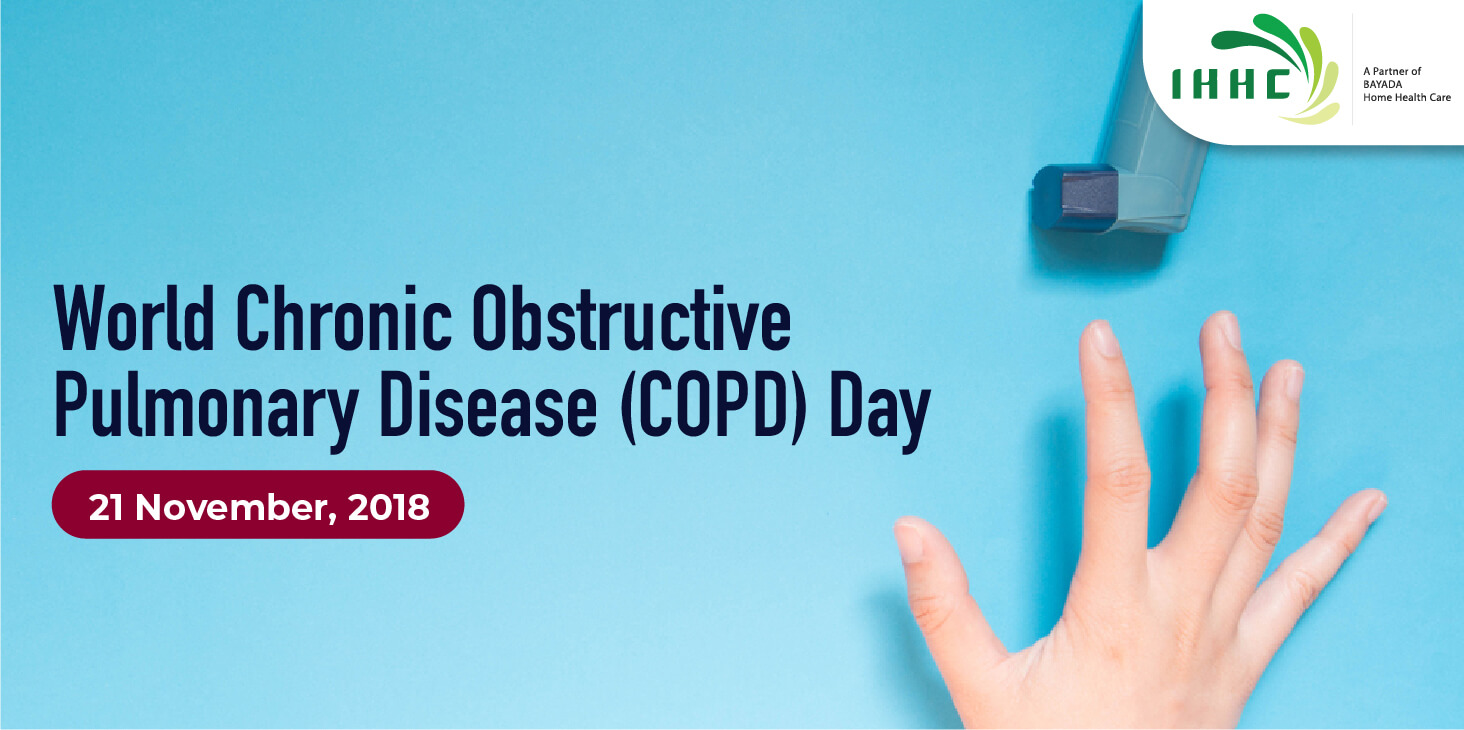Is there a need for home healthcare in India?
What can be more horrible than being unable to breathe? Can you think of any situation that is more painful than gasping for air? Yet, tens of millions of people suffer from lung disease in India. The causes are many: genetic pre-conditions, pollution, smoking and infections – the list is a long and scary one.
This inability to breathe is a direct consequence of the lungs being compromised.
The lungs are part of a complex physiological apparatus, expanding and relaxing thousands of times each day to bring in oxygen and expel carbon dioxide. Lung disease can result from problems in any part of this system. But, one of the most common ones is Chronic Obstructive Pulmonary Disease (COPD) - a chronic inflammatory lung disease that causes obstructions in the airflow from and to the lungs. Those who suffer from COPD are at increased risk of developing heart disease, lung cancer and a variety of other, quite often fatal, conditions. COPD is typically caused by long-term exposure to irritating gases or particulate matter, most often in the form of cigarette smoke.
Symptoms of COPD
These include:
- Breathing difficulties
- Frequent coughing
- Mucus (sputum) production
- Wheezing
- Chest tightness
- Blueness of the lips or fingernail beds (cyanosis)
- Frequent respiratory infections
- Lack of energy
- Unintended weight loss (in the later stages)
- Swelling in the ankles, feet or legs
Emphysema and chronic bronchitis are two of the most common conditions that are the root causes of COPD.
Chronic bronchitis is an inflammation of the lining of the bronchial tubes
Emphysema is a result of the alveoli, at the end of the smallest air passages (bronchioles) of the lungs, being destroyed
The root causes: Cigarette smoke and other particulate matter and irritants
For the most part, the lung damage that leads to COPD is caused by long-term cigarette smoking. But there may be other factors, such as a genetic susceptibility to the disease, and other irritants including cigar smoke, second hand smoke, pipe smoke, air pollution and workplace exposure to dust, smoke or fumes.
Risk factors for COPD
- Exposure to tobacco smoke.
- Asthma – in patients who smoke
- Exposure to dust and chemicals
- Exposure to fumes from burning fuel
- Genetic: The uncommon genetic disorder alpha-1-antitrypsin deficiency is the cause of some cases of COPD
Complications of COPD
- Respiratory infections
- Heart problems
- Lung cancer
- High blood pressure in lung arteries
- Depression
Treatment
Most of us may have mild forms of COPD, for which little therapy is needed other than not smoking. For advanced stages of the disease, therapy can control symptoms, reduce the risk of complications and improve one’s ability to lead an active and normal life.
Medications
There are several kinds of medication to treat the symptoms and complications of COPD, including:
Bronchodilators
These medications — which are in inhalers — relax the muscles around the airways. This relieves coughing and shortness of breath and make breathing easier.
Inhaled steroids
These corticosteroid medications reduce airway inflammation and help to prevent exacerbations.
Combination inhalers
These medications combine bronchodilators and inhaled steroids.
Oral steroids
For those with moderate or severe exacerbation, short courses of oral corticosteroids can prevent COPD from getting worse.
Phosphodiesterase-4 inhibitors
A new type of medication for people with severe COPD and symptoms of chronic bronchitis is a phosphodiesterase-4 inhibitor. This reduces airway inflammation and relaxes them.
Antibiotics
Respiratory infections, such as acute bronchitis, pneumonia and influenza, can increase COPD symptoms. Antibiotics help to treat the more acute symptoms.
Lifestyle changes
There are certain lifestyle changes you can make to feel better and slow the damage to your lungs:
- Control your breathing. Talk to a doctor or a respiratory therapist about techniques for breathing more efficiently throughout the day.
- Clear your airways. Controlled coughing, drinking plenty of water and using a humidifier may be effective in controlling this issue.
- Exercise regularly. Regular exercise can improve overall strength and endurance while strengthening the respiratory muscles.
- Eat healthy. A healthy diet can help you maintain your strength and endurance.
- Avoid smoke and air pollution. Other than quitting smoking, avoid places where others smoke. Other types of air pollution also can irritate your lungs.
- See your doctor regularly. It's important to monitor your lung function regularly.




